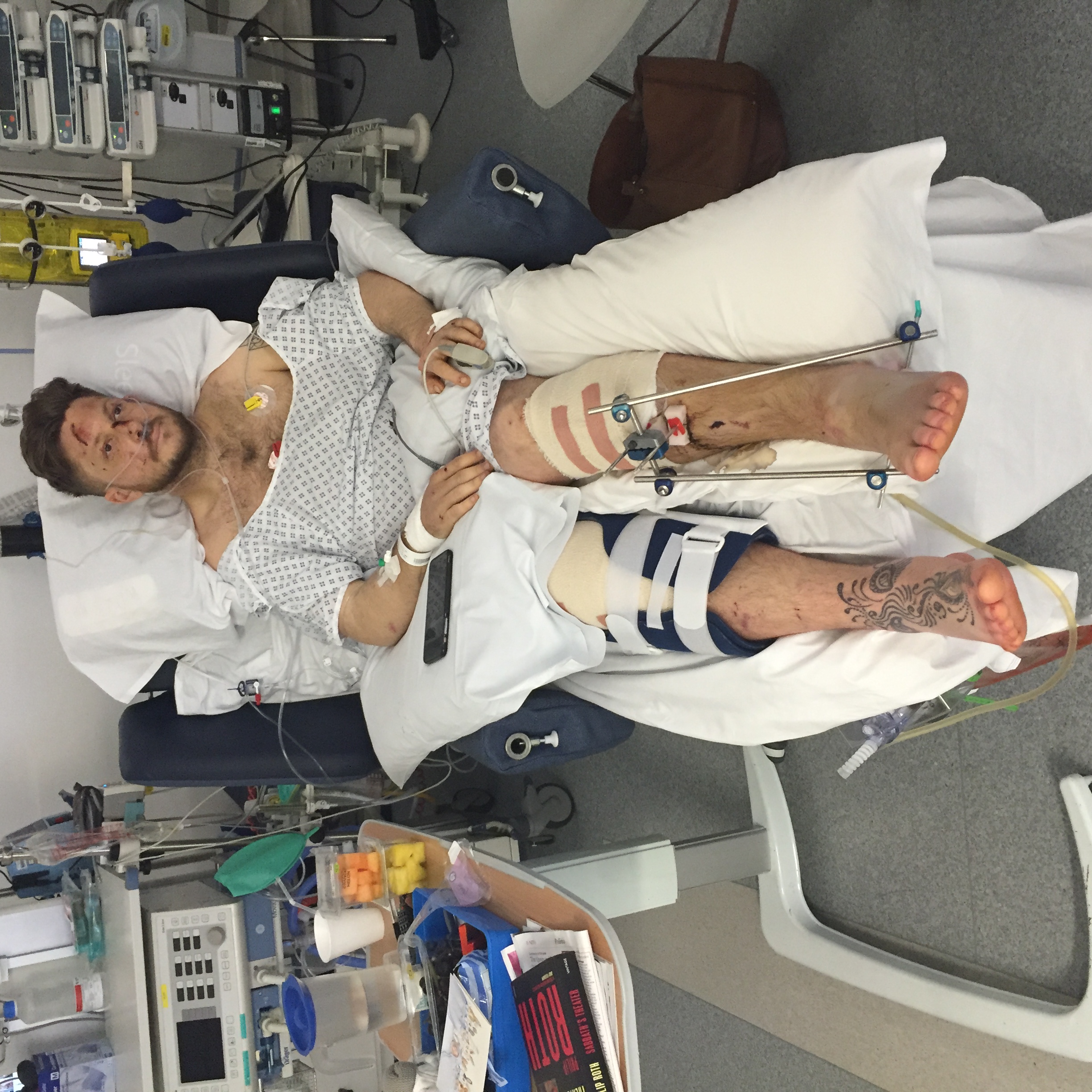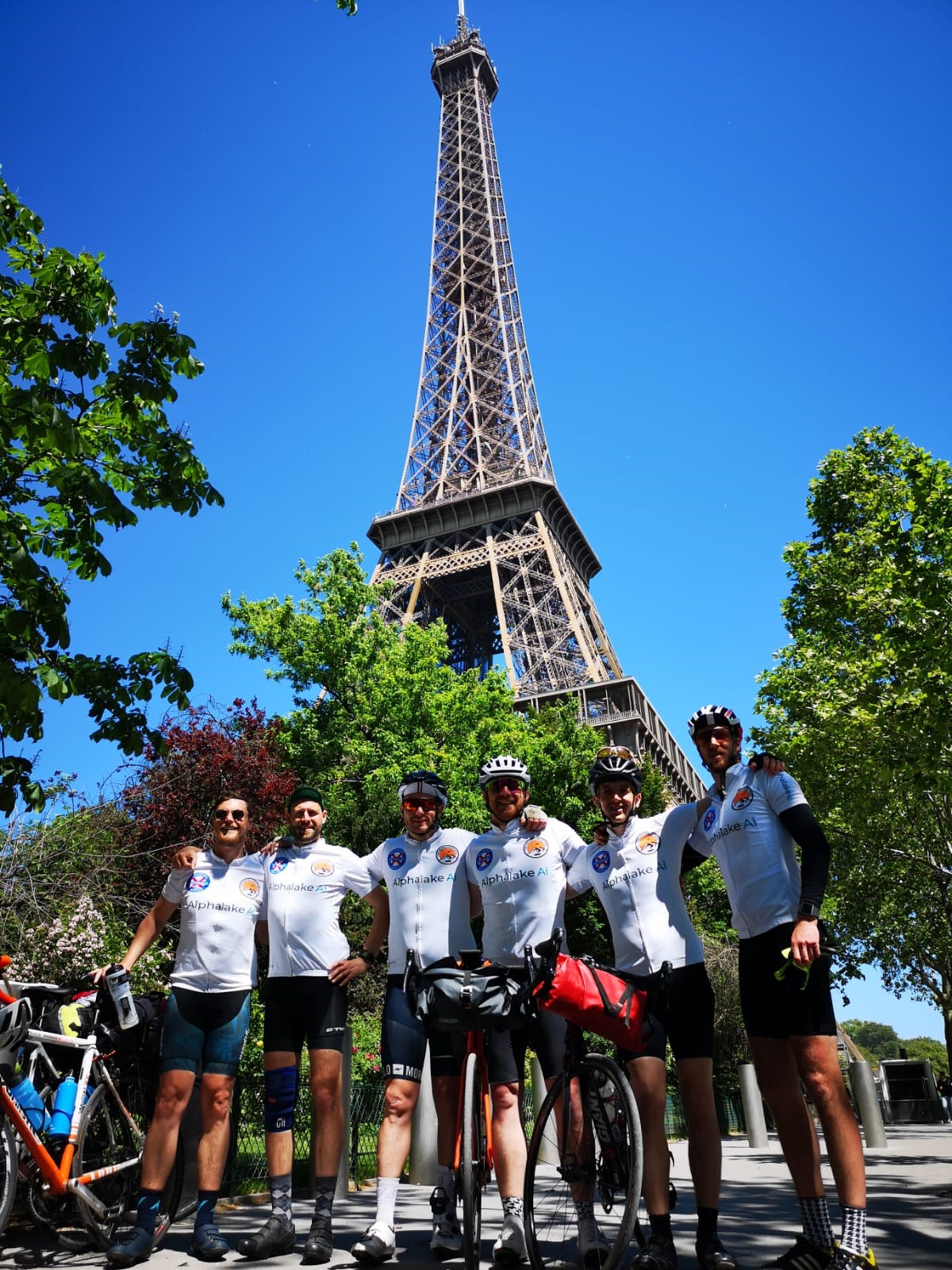“A huge and much-needed boost”
Joe was on a camping and walking holiday in the Lake District when it happened. Walking on Helvellyn, the third highest mountain in England, he lost his footing and fell 200m – around 60 storeys – down a slope.
The fall broke his neck, kneecap, leg, arm, foot, ankle, shoulder, hand, and most of his ribs. Joe also suffered a collapsed lung, a dislocated ankle and multiple lacerations.
 But he says he was lucky. “Fortunately for me, there was a group at the bottom of the hill being led by someone from Patterdale Mountain Rescue Team,” Joe explains. “He saw me fall and was able to administer life-saving first aid immediately.
But he says he was lucky. “Fortunately for me, there was a group at the bottom of the hill being led by someone from Patterdale Mountain Rescue Team,” Joe explains. “He saw me fall and was able to administer life-saving first aid immediately.
“He phoned through to his team and 19 mountain rescue volunteers worked tirelessly to keep me alive over the next 8 hours, whilst waiting for the helicopter. Due to the high winds and fact I was still on the side of a hill, it couldn’t get to us, meaning the Sea King coastguard helicopter had to be called.
(Picture: Joe's fall broke his neck, kneecap, leg, arm, foot, ankle, shoulder, hand, and most of his ribs)
“Once they’d got me to Newcastle, the trauma team had to meet us on the field over the road as the helicopter was too big for the hospital helipad!”
Joe spent the next week in intensive care, receiving several surgeries. To his knowledge, he received blood twice.
In emergency situations, where a patient’s blood type is unknown, O negative blood is used. O negative can be given safely to people with any other blood type. This is why O negative blood is called ‘the universal type’.
“The second time I was given blood, I felt a huge and much-needed boost. It was the first time I had energy enough to stay awake and speak to my loved ones.
 “After 3 weeks in Newcastle, I was transferred to my local hospital in Hackney. I spent another few months in a wheelchair while my injuries began to heal.
“After 3 weeks in Newcastle, I was transferred to my local hospital in Hackney. I spent another few months in a wheelchair while my injuries began to heal.
“Over time, I gained strength and began to get back on my feet with the help of physiotherapy. I went back to work as soon as I could stand and before too long, I was able to walk with crutches.
“I’ve needed another 3 or 4 operations since then, but I’m now as recovered as I’ll ever be. There’s an awful lot I can’t and won’t be able to do anymore, but I’m here and I’m alive. I’m ever so lucky I didn’t damage my spine further or suffer any serious head injury.”
(Picture: Joe and his friends after completing a sponsored cycling trip to Paris)
Joe is now hiking again and with friends, completed a sponsored cycling trip to Paris that raised nearly £10,000 for the mountain rescue team that saved his life – he’s also paid them a “very special” visit in the Lake District.
But Joe also says he has a great debt of thanks to blood donors who were just as vital a part of the rescue effort.
“After my accident, I certainly encourage all my friends and family to give blood,” he says. “That selfless and seemingly small act of kindness will likely help a person get through the hardest moment of their entire life.
“You’ll never know what it is used for but know this: you helped save a person’s life.”
